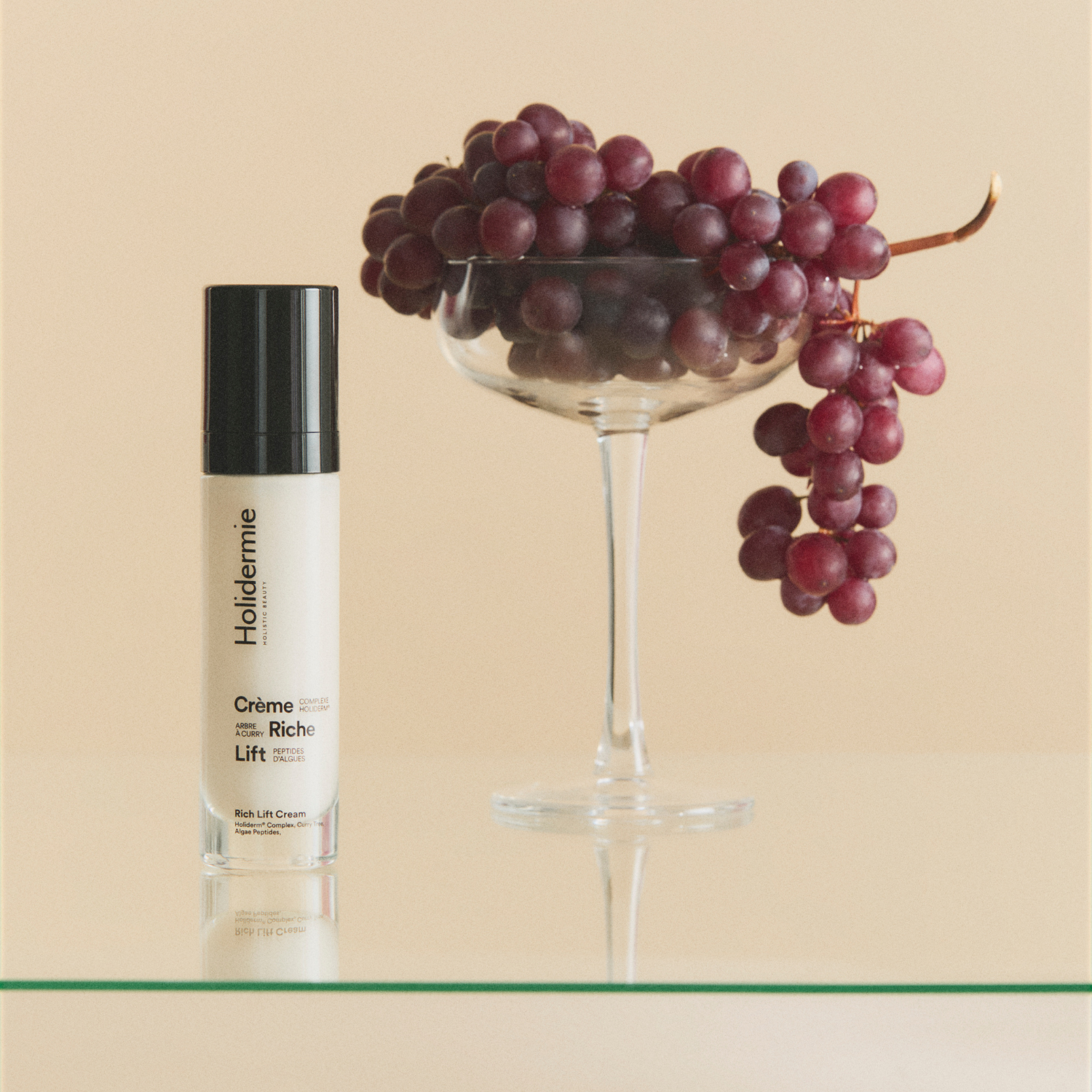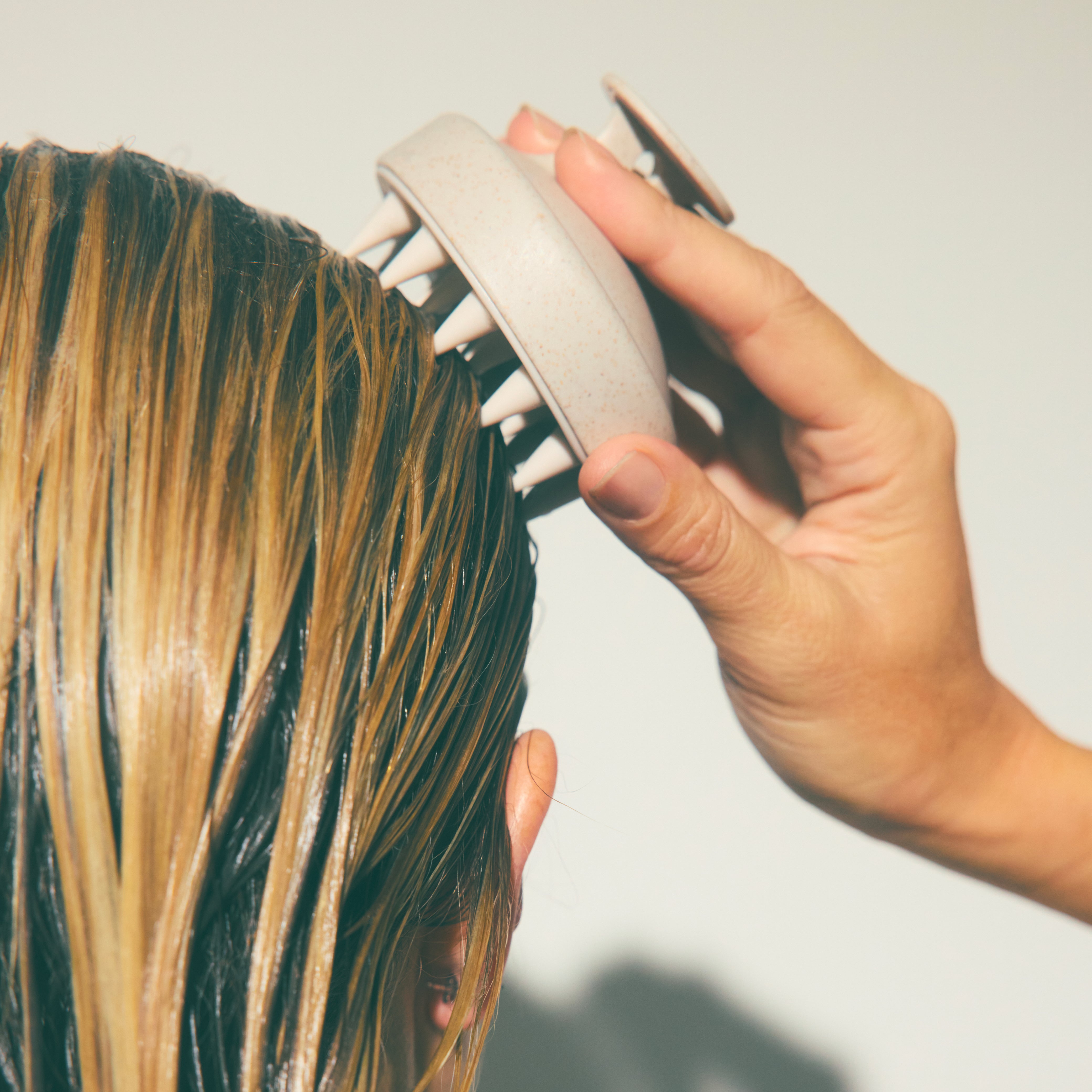
Oil mouthwash: what is the purpose of the oil pulling method?
Zoom sur le bain de bouche-en-huile : un rituel naturel qui permet de garder une bonne santé bucco-dentaire et une haleine fraîche.
À l’occasion de la sortie de son bain de bouche-en-huile, aussi appelé « Gandusha » en Sanskrit, Holidermie souhaite nous faire découvrir une pratique ancestrale issue de l’Ayurveda.
Cette dernière est baptisée oil pulling que l’on pourrait facilement traduire par : « retirer avec de l’huile ». Ce rituel naturel et détoxifiant consiste à effectuer un bain de bouche, non pas avec une formule classique, mais avec de l’huile végétale. Le but ? Conserver une bouche saine en éliminant les bactéries et les résidus que la brosse à dents ne peut pas toujours atteindre. Cette méthode offre également d’excellents résultats sur la conservation de la blancheur des dents, le maintien de gencives fortes et plus globale-ment, l’assainissement de l’organisme tout entier.
Quelles huiles sont utilisées pour pratiquer la méthode de l’oil pulling ?
Les huiles les plus appréciées en matière de bain de bouche sont celles de coco et de sésame. Si on les utilise fréquemment pour ce type de soin, c’est parce qu’elles disposent de vertus particulièrement intéressantes pour l’hygiène bucco-dentaire. L’huile de coco est riche en acide laurique, reconnu pour emprisonner les bactéries à l’origine de désagré-ments dentaires. L’huile de sésame, quant à elle, dispose de vertus anti-bactériennes et anti-inflammatoires. Dans le bain de bouche Holidermie, on retrouve également de l’huile essentielle de menthe bio, qui offre des effets calmants et apaisants et de l’huile essentielle de citron bio, aux vertus antiseptiques et antibactériennes.
Pourquoi préfère-t-on les bains de bouche à l’huile que les formules classiques ?
Tout simplement parce qu’à ce jour, de nombreux ingrédients chimiques rentrant dans la composition des bains de bouches classiques sont décriés. En ligne de mire ? La chlorhexidine, qui permet de tuer les « mauvaises bactéries » mais finit par éliminer aussi les bonnes, ce qui engendre fatalement un déséquilibre du microbiome buccal et une acidification de la salive qui peut conduire à une déminéralisation des dents. Autre effet néfaste : la chlorhexidine peut augmenter la pression artérielle chez les per-sonnes sujettes à l’hypertension. Lorsque c’est le cas, un bain de bouche à l’huile semble donc tout indiqué pour maintenir une hygiène buccale optimale.
Comment utiliser le bain de bouche à l’huile et à quelle fréquence ?
Il faut savoir que le brossage des dents n’atteint que 60% de la surface de celles-ci et 10% seulement de l’ensemble de la cavité buccale. Pratiquer un bain de bouche à l’huile quotidiennement est donc important pour pouvoir retirer les mauvaises bactéries et les résidus des endroits les plus difficiles à atteindre avec la brosse. Chaque matin à jeun, faites donc circuler l’équivalent d’une cuillère à soupe de bain de bouche à l’huile pendant 10 minutes. Une fois que vous avez terminé, déversez le liquide dans le lavabo et rincez-vous la bouche à l’eau claire avant d’apprécier la sensation de fraîcheur que ce rituel vous a procuré.
Pourquoi prête-t-on des vertus détox au bain de bouche à l’huile ?
La bouche dispose de « déchets » provenant de substances incomplètement digérées et non assimilées par l’organisme. En Sanskrit, on les appelle les « ama » ce qui veut dire « affaiblir » ou « faire du mal ». Ces résidus, sont accumulés pendant la nuit et doivent donc être éliminés afin de ne pas venir polluer le reste du corps. Un travail que la méthode de « l’oil pulling » fait à la perfection. Voilà pourquoi on lui prête des bienfaits détoxifiants.
Peut-on avaler le bain de bouche à l’huile ?
Bien qu’il ne contienne pas de produits chimiques ou d’ingrédients nocifs comme la chlorhexidine, il n’est pas conseillé d’avaler le bain de bouche à l’huile.
Pourquoi ?
Et bien tout simplement parce qu’avaler le mélange reviendrait à engloutir les milliards de bactéries dont on ne veut pas forcément dans l’organisme. Ce qui est dommage connaissant toutes les vertus détoxifiantes de ce rituel.
Mauvaise haleine : en quoi le bain de bouche à l’huile peut aider ?
Comme on vous le disait, les dents abritent des milliards de bactéries au quotidien. Ces petits habitants accompagnés de résidus de nourritures qui se sont logés à des endroits difficiles d’accès pour la brosse, peuvent fermenter et créer des odeurs. C’est ainsi que la mauvaise haleine apparaît. Heureusement, la méthode de « l’oil pulling » permet, en gar-dant le « Gandusha » plus de 10 minutes dans la bouche, de retirer les mauvaises bactéries sans porter atteinte aux bonnes. Les résidus, quant à eux, sont également piégés dans l’huile et évacués lors du rinçage. Une fois les dents propres, le bain de bouche à l’huile y dépose une très fine particule lipidique pour pouvoir les protéger efficacement du tartre.










